We all love cars, some of us love them a tad more aggressive than others, Case and point, you know that guy installs a big wing on the back of his 1996 Honda Civic? Don’t be that guy. One of the easiest upgrades that enhances the look and function of your vehicle is by adding car window tinting.
That’s the guy you want to be.
It’s exceedingly rare in life to come across things that are both beautiful and functional. Among the best examples of beautiful functionality are what we find roaming on the roads of America. Yes, at their core, our cars, trucks, and SUVs are designed to serve a purpose, a purpose that shifts around as we move in and out of different stages of our lives. Whether you’re a new parent who just purchased their first three-row SUV or a young college graduate who’s looking to build that “made it” car; our vehicles ultimately become both a reflection of us and a crucial element to living our lives to the fullest.
Whether you’re an automotive enthusiast or shuttling around children in your three-row SUV; window tint is one of the most effective ways to enhance the beauty of your vehicle while also providing a ton of health and safety benefits. Tinting your car’s interior windows is about way more than just looking incredible, but due to the wide variety of poor information out there, you may be confused on whether tinting your car windows is the right move for you. Luckily for you, we have you covered.
We’re going to cover everything you need to know about car window tinting to help you make the best decision for you and your ride:
- The Danger Of UV Rays
- Infrared Heat = Hot Interiors
- Shattered Glass In Car Accidents
- Does Darker Tint Mean More Protection?
- Car Theft: An Impulse Crime
- Rules and Regulations
So let’s get into it!
Table of Contents
The Danger Of UV Rays in Cars
Although most of us have had the unfortunate honor of being blessed by a righteous sunburn on a sunny day, most people aren’t actually aware of what causes this uncomfortable problem. All the energy that reaches our planet falls into the Electro-Magnetic Spectrum which includes visible light, ultraviolet light, infrared, radio waves, X-rays, and gamma rays. Ultraviolet, or UV, light is the main culprit for not only a nasty sunburn but is the primary cause of skin cancer in human beings as well.
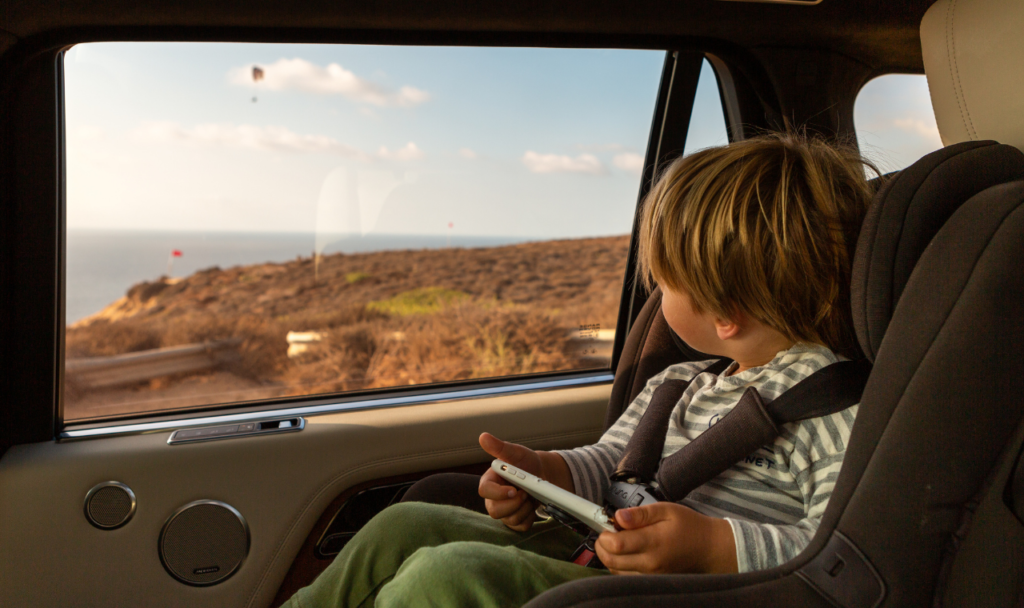
UV radiation is broken up into three groups:
- UVA: These are the weakest of the UV rays and are thought to have an effect on conditions like wrinkles but may have a trace effect on skin cancer
- UVB: These rays carry slightly more energy than UVA and are responsible for the mutation of DNA in our skin cells that causes cancer.
- UVC: This is the most dangerous UV ray but does not make it to the earth due to being blocked by elements in our atmosphere.
According to the University of Utah, if the sun is shining on your skin through your side windows; you are being exposed to potentially dangerous UV rays. While front glass is legally required to block UVA and UVB rays, there’s nothing to block these dangerous rays from coming in through other windows in your vehicle.
Quality car window tinting will block 99.9% of UV rays from entering your vehicle and this approach is even recommended by the Skin Cancer Foundation as a part of a comprehensive skincare routine.
Infrared Heat = Hot Interiors
Most of us have had the joy of entering our cars on a sweltering summer day, only to be blasted by a wall of screaming hot air. You know the drill, you immediately rush to turn the vehicle on so you can blast your Air Conditioning at full blast to bring some comfort to yourself and your passengers. Remember that electromagnetic spectrum from the sun we talked about above? Well, your car’s sweltering interior on a sunny day is due to the effects of infrared radiation which enters into your vehicle through your car’s windows and is then trapped within your interior.
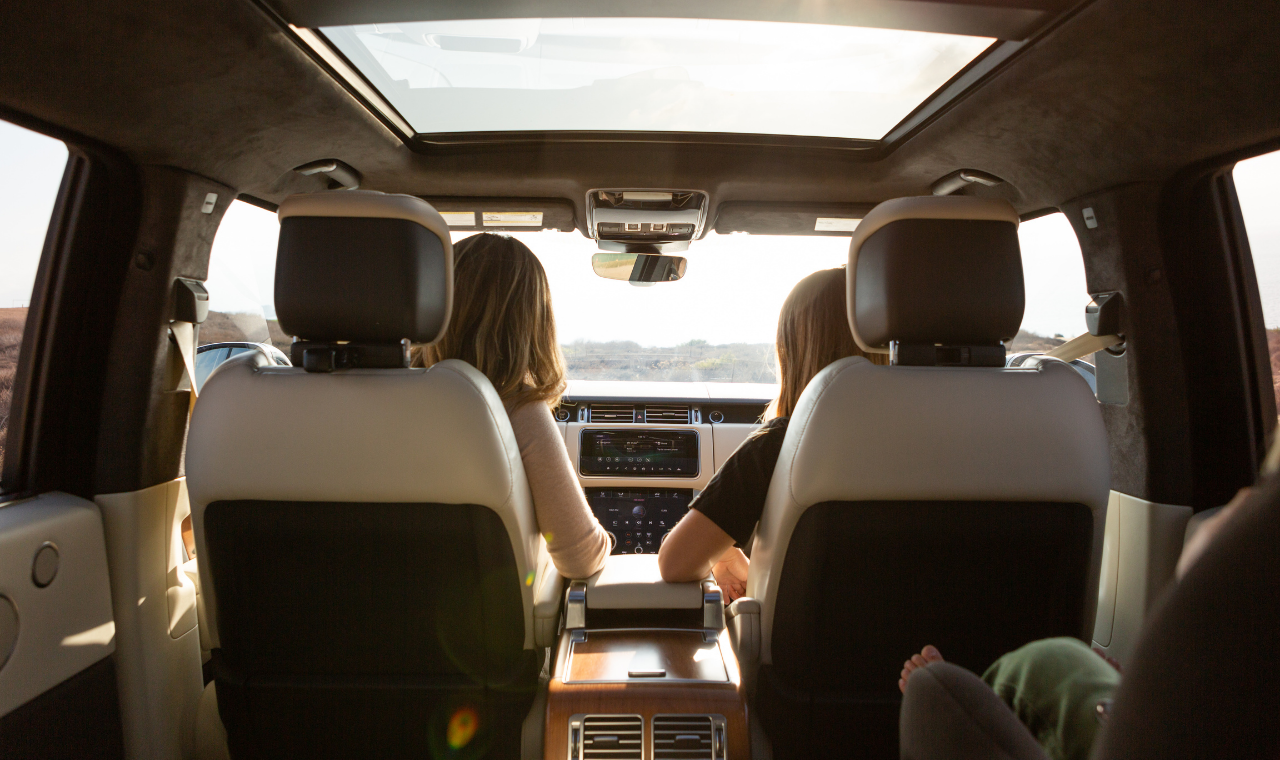
In order to mitigate this condition, owners have different types of film including ceramic film which can utilize its infrared Rejection (IR) properties to substantially mitigate this problem. To reflect infrared heat, high-performance window films utilize a variety of materials, like nano-ceramic coatings, that are designed to block infrared waves while still providing high levels of clarity and style.
Shattered Glass In Car Accidents
Among the biggest advances of the last 50 years is the advent and wide adoption of automotive safety glass. Modern automotive glass is designed to minimize danger to occupants during an accident by fracturing into tiny pieces vs. large, sharp shards of glass. Even though these tiny pieces of glass pose less of a risk for serious injury, they can still cause lacerations to occupants and those around an accident scene.
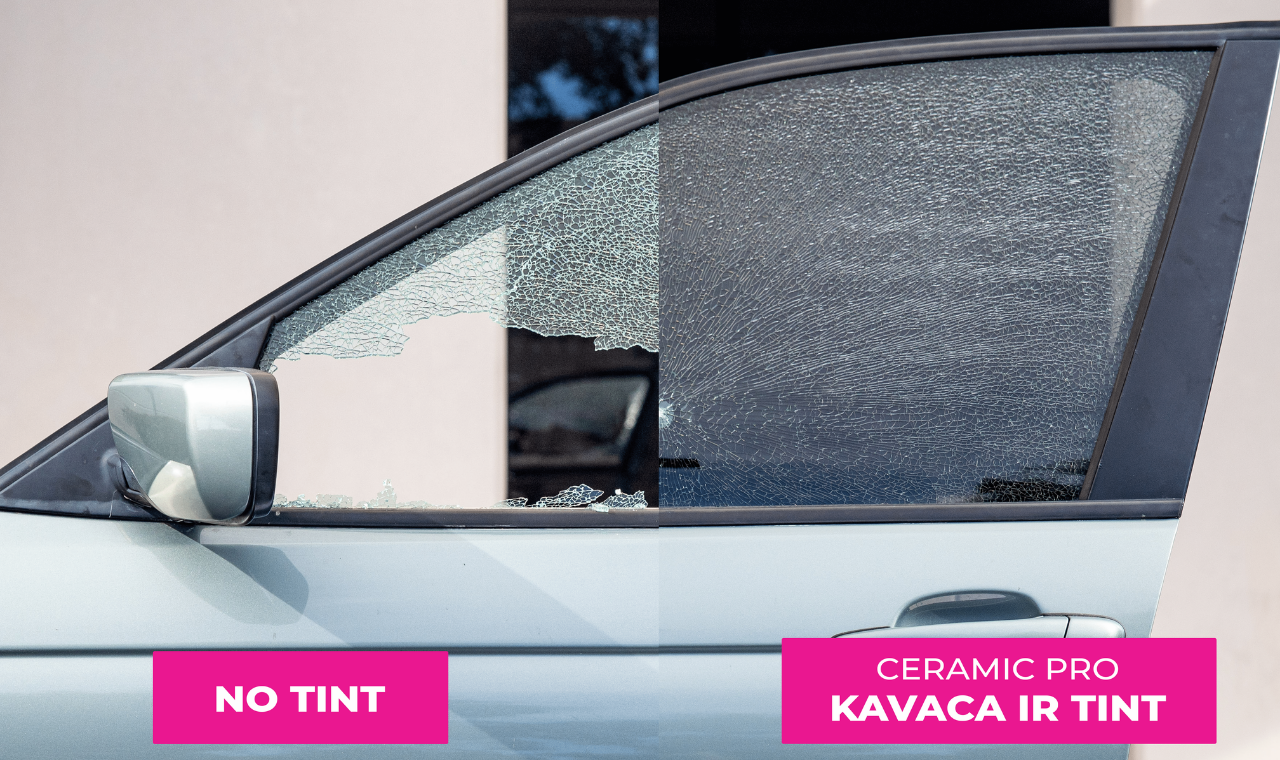
While tinted windows do not prevent the auto glass from shattering; professionally applied, high-quality window tinting can minimize the effect of potentially harmful glass dispersal by containing the shattered window pieces on the adhesive surface of the window tint. This is an incredibly valuable safety benefit to both drivers and passengers.
Does Darker Tint Mean More Protection?
While it may seem perfectly logical to assume that darker window tint provides more UV and infrared protection, this isn’t necessarily true. In the early days of auto window tinting, manufacturers did indeed rely on darker shades to provide protection to occupants. Window tint is designed to block both visual light and invisible light and it’s the visual light that is most affected by a darker tint on modern vehicles. The challenge with darker tint film is that they block light coming in so well, that the low ambient light levels at night can make seeing out of challenge for drivers.
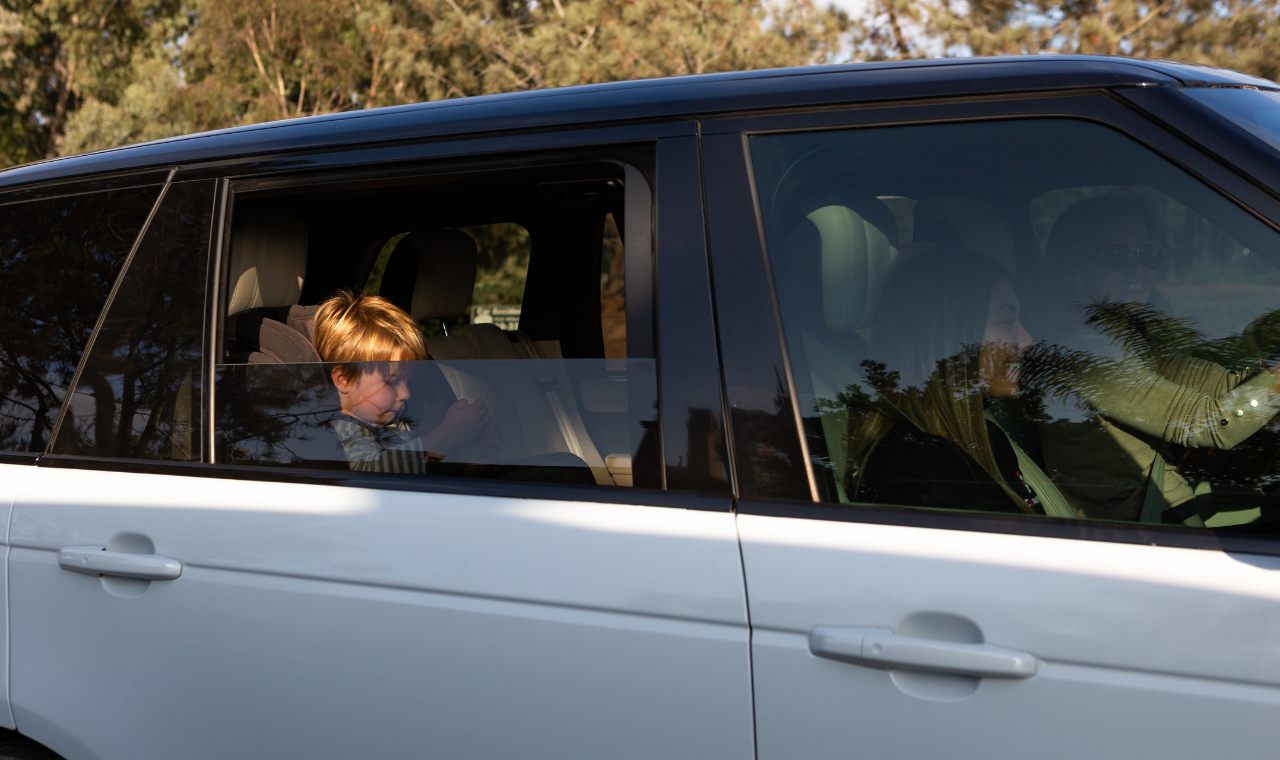
As car window tint technology has progressed, manufacturers have developed ways to maintain an effective product while not resorting to ever darker shades. In fact, there are completely clear versions of window film that block UV and infrared rays without resorting to any shading at all! Dark tint absolutely does not ensure more protection, it only ensures a reduction in glare and aesthetically pleasing good looks. There is also higher-grade film such as ceramic window film that allows for an added layer of protection.
Car Theft: An Impulse Crime
We’re not going to delve into the psychology and science of criminals here but there is a mountain of evidence that indicates that smash/grab crimes are committed by individuals who are acting on opportunistic impulse rather than being criminal masterminds. The logic here is quite simple, if you have a properly dark window tint on your vehicle, your possessions are likely more hidden than someone who has no car tint.
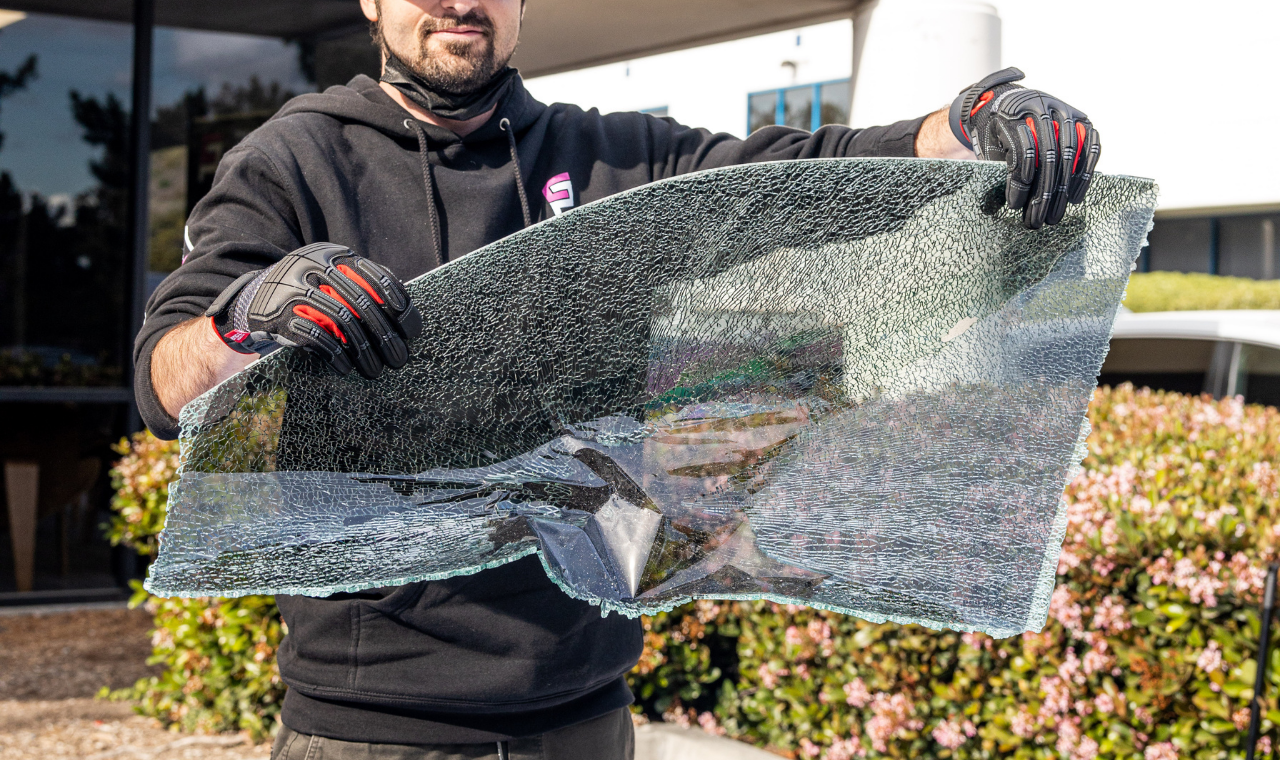
Car thieves are less likely to break into your car if there is little guarantee of reward and will simply move past your car and on to easier targets. Will window tinting prevent all crime against your vehicle? No, but it could make a big difference in which vehicle thieves choose to target.
Window Tinting Rules and Regulations
Jurisdictions seek to maintain driver safety and officer safety by regulating the darkness of car window tint. As frustrating as it can be, every single state in the country has a slightly varied version of what is acceptable when applying car window tint. Violations of these regulations can lead to expensive tickets that force drivers to remove the offending window tint and prove removal to local authorities prior to clearing the violation.
Here’s a comprehensive list of state by state regulations from the good people at AAA: Tinting Regulations By State
The Professional Car Window Tinting Choice
When considering tinting the windows on your own personal ride, you may be overwhelmed by the huge selection of brands and options in the marketplace. Keep in mind: not all window tint is created equal! The vehicle coating experts at Ceramic Pro have developed a window film that redefines the notion of “industry standard”. Introducing: Ceramic Pro KAVACA Window Film
This amazing product is offered in two varieties to meet your performance goals:
- KAVACA Ceramic IR is the ultimate in protection, filtering out 99.9% of UVA and UVB light while also filtering 96% of infrared waves.
- KAVACA Carbon is a beautiful, color-stable film that blocks 99.9% of harmful UV rays while filtering out 70% heat-producing infrared.
No matter your budget or your performance goals – the coating experts at Ceramic Pro have an incredible solution for you. To learn more about car window tinting solutions offered by Ceramic Pro, or to receive a free quote.
